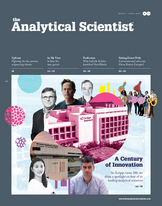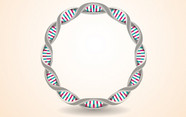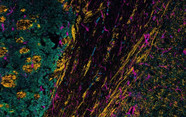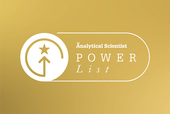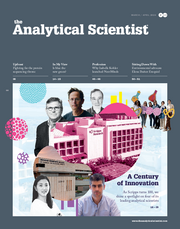Top 10s: The Old Guard
As The Analytical Scientist turns 10, we look back at some of our earliest interviews – with several heroes of the field, including Fred McLafferty, Georges Guiochon, Eva Smolková-Keulemansová, and more analytical legends

Connecting Separation Science: Pat Sandra
“First, the new generation should try to understand better what they are doing. They don’t know or remember the fundamentals, making it difficult for them to make good selections. Second, companies are now so pushed into doing marketing that it sometimes seems more important to them than the science. That’s a little bit shocking. Third, there is a problem with software. You can’t operate a system without spending a day with the software manual; each instrument and manufacturer have their own software, which is frustrating – it should be uniform across all the analytical techniques to make it easier.”
Pursuing the Preparative: Georges Guiochon (1931 – 2014)
“I look at personal interactions, and helping people. A large part of the work on nonlinear chromatography was done with a guy from Iran who is now president of a US company. He first came to America in the late 1970s but went home after a year – it was at the time of the crisis at the US Embassy in Tehran. About a year later, a close friend of his was kidnapped and killed by the Iranian police and he returned. At the time I was the most recent professor appointed at Georgetown University so he was assigned to me and I quickly found that he was very smart with good mathematical training but completely unable to write in English. But his equations made sense and there was just about enough writing in between. I have brought people to work with me from Central Europe, Russia, Cuba, Iran, China, and that is what has given me the greatest satisfaction.”
Here, seven friends, colleagues and collaborators remember Georges with great fondness.
The Distinguished Scientist: Richard D. Smith
“It goes back to the mid-1970s – very early in my career – when I was thinking about what large research impacts might be enabled by MS. At that time, there was a very small community pursuing the development of MS for what are now considered extremely simple biological applications. Applying MS for the characterization of whole ‘biological systems’ was really not discussed; the possibilities then were greatly constrained by some really difficult problems: lack of sensitivity, limitations of MS ionization methods, separation methods to which MS could be interfaced, and a range of other MS capabilities. I was intrigued by these problems, and realized that if they could be solved, MS could become an integral technique for biological research.”
The Old Guard: Fred McLafferty (1923 – 2021)
“At the age of 21, it was a very maturing experience. I was in an infantry rifle company on the front line. And while I’ve won several medals, it had more to do with the fact that my particular company experienced very difficult and unusual battles and included great people that deserved recognition. I just happened to be there. Yes, I got a Purple Heart – that means I was wounded. But there are 193 men in a rifle company and we got 194 Purple Hearts. What it really means is that we saw a lot of action. The highest US award is the Medal of Honor – I think there were 384 given in World War II all told – and we had a guy in our company, Johnny Crews, who received one. I was just along for a nice picnic compared with what he did. We had 35 killed in action, so I was also very lucky. Those are the people that really deserve to be honored, of course.”
Mother of Ambition: Marja-Liisa Riekkola
“Well, I was the first female full professor in Finland – and when I started I was also pregnant. The majority of the science faculty was male and they didn’t really know how to handle a pregnant professor. But I proved that gender didn’t matter – it is the results that count. I was also involved in an EU project – “Advanced Training for Women in Scientific Research” – where I mentored a younger female scientist in career development amongst other things. Actually, the interesting discussions we had were also helpful for me.”
The Selective Chemist: Wolfgang Lindner
“I always ask tough questions, even in seminars; some people are afraid of that. Speaking of seminars, I’ve always enjoyed giving lectures to large audiences and I like the applause afterwards, I suppose it’s similar to how actors feel. But, as with a play, an ovation only comes from a fully engaged audience. It’s only then that you can see whether you’ve really reached your audience, or put them to sleep. That’s an enjoyable challenge.”
A Leading Light: Gary Hieftje
“Our research publications and patents are, to me, just a by-product; talented students are the real ‘product’. Of course, I get a kick out of coming up with new ideas, testing them and publishing the results. But seeing students’ eyes light up and watching them get involved in science is tremendously exciting. I had a pre-med student in my group a couple of years ago and the infectious enthusiasm for instrumental analysis corrupted him completely… He’s just finished his PhD with Graham Cooks at Purdue. Apologies to the medical community, but that’s very satisfying.”
The First Lady of Chromatography: Eva Smolková-Keulemansová
“I was born on April 27, 1927. I grew up in the suburbs of Prague with my beloved parents. I had a happy childhood and enjoyed school until the Second World War and the occupation of my country. I spent the wartime in Theresienstadt, Auschwitz, Hamburg and, finally, Bergen-Belsen. After the liberation, the Red Cross took me to Sweden for medical treatment – but my dream was to return to Prague to resume my studies. My dream came true in November 1945.
“I returned from my bad experience in the war with a key philosophy: my eyes are in the front of my head, therefore, I need to look towards the future. That’s helped me throughout my whole life.”
Bioanalytical Living Legend: Barry Karger
“When I started, analytical chemistry was suffering a real loss of prestige, so being aware of opportunities was important. Today, the situation has dramatically improved. If you have something new and can solve a problem that hasn’t been solved before, people will be knocking down your door. The term “analytical chemist” is less used these days – people are described as bioengineers, clinicians and so on – and that’s a good thing because we need a collaborative approach; the problems we’re tackling now are much more complex than ever before – in part because we now have the tools to tackle them.”
Writing the Book on GC – and Living Life: Harold McNair (1933 – 2021)
“If I think about all the experts I’ve worked with, including those early pioneers – they were willing to share their ideas with everybody. I was just fascinated by these people and knew they were smarter than me. They turned me ‘on’ to GC. I only hope that in some way I’ve been able to pass that enthusiasm on to my colleagues and grad students.
“One of my former students was asked if he had learned a lot about chemistry from me. He said, ‘Chemistry? That came easily. We learnt how to drink beer, how to travel around the world, how to stay up late entertaining people and still get up the next day to give a lecture at 8am. We learnt from Professor McNair how to live and enjoy life!’”
Past students, colleagues and friends discuss the Harold McNair school of teaching, mentorship, networking, communication, and life.
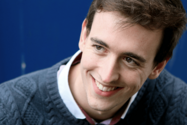
Over the course of my Biomedical Sciences degree it dawned on me that my goal of becoming a scientist didn’t quite mesh with my lack of affinity for lab work. Thinking on my decision to pursue biology rather than English at age 15 – despite an aptitude for the latter – I realized that science writing was a way to combine what I loved with what I was good at.
From there I set out to gather as much freelancing experience as I could, spending 2 years developing scientific content for International Innovation, before completing an MSc in Science Communication. After gaining invaluable experience in supporting the communications efforts of CERN and IN-PART, I joined Texere – where I am focused on producing consistently engaging, cutting-edge and innovative content for our specialist audiences around the world.






